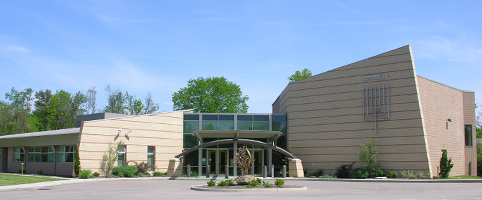A Message from Rabbi Ferro Concerning Our Efforts to Respond Appropriately to the
Coronavirus (COVID-19) Pandemic:
Dear friends,
The news around the Coronavirus (COVID-19) outbreak has continued to get worse, and the precautionary recommendations from the Centers for Disease Control and others have become increasingly restrictive.
There are a number of things I want to convey to you here.
In this email:
I. About Our Programming
II. What to Do in the Meantime
III. Helping Our Community
II. About Our Programming
Some of you may be wondering, however, which programs we will intend to keep on the calendar and which ones we will be canceling or postponing.
The short answer is that as of this writing, we are looking at moving all learning sessions and meetings to an online or phone-based format, and postponing or canceling anything we can't do this way. This would go from now until at least the beginning of April, and probably a bit longer than that as well.
I say "as of this writing" for two reasons.
The first, as you may know, is that this situation is exceedingly dynamic. Things seem to keep shifting in terms of the severity of the steps recommended to keep the spread of this virus in check as well as the complications to our lives and routines posed by the economic disruptions and infrastructure disruptions that the situation has caused.
The second is that over the last few days, I have made a number of immediate-term programming decisions unilaterally, with only the incidental input of one or two other people. This has been a matter of necessity, but one which I regret, insofar as I do not want to circumvent our normal decision-making processes.
I take very seriously our congregation's identity as a volunteer-driven organization. For this reason, while I have my own feelings about what is halakhically and morally correct, I do not want mine to be the only voice in the discussion.
In the meantime, we need some guidelines. So, my strong recommendations are that we:
- Convert all in-person meetings for the next two weeks to video or audio call-in meetings;
- Do not meet for religious purposes for the next two weeks (not for weekday minyanim, and not for Shabbat); and
- Reschedule special programs like our geniza burial and cemetery cleanup (on the calendar for this coming Sunday, March 22).
III. What to Do in the Meantime
It may seem that with so much of our regular activity shut down, there will be a huge gap in everyone's lives. I'm hoping that we can fill that gap to some extent with some other content delivered electronically.
While the "let's go online" solution is far from ideal, it does give us an opportunity to do a few things that we've been wanting to do for some time, but which have been stymied by the logistics of trying to arrange for an in-person event with food, with babysitting, or with some other challenging piece to try to fit in. Among these are classes on trop (chanting) and tefillah (prayer).
In addition, look for a Torah study session beginning soon to take the place of the traditional Monday, Thursday, and Saturday readings.
We are currently investigating the possibility of streaming services, but the consensus is that we cannot constitute a minyan without ten people in the same place at the same time (and we really shouldn't try to gather ten people together at this time).
Our best option may well be to each pray on our own (which makes a class on prayer, as mentioned above, a very good thing to be offering right now). To this end, there are two resources I want to make sure to share with you here.
One is the following link from the Rabbinical Assembly, which will take you to a page where you can fill out a few details and then download an electronic copy of our prayer book for your own use:
The other is a prayer which can be recited in place of Mourner's Kaddish if you are unable to join a minyan. I'm attaching both the original, from our Siddur Lev Shalem, and a rewritten version, which can be recited only by a single individual.
IV. Helping Our Community
Lastly, I want to address a topic which is of high concern to me and my family, and is likely on your minds as well: what can we do to help others in this situation?
There are a few suggestions I want to offer.
- Follow distancing recommendations from the CDC. Staying away from each other (especially in groups) minimizes the risk that someone who has been exposed to the virus will ultimately pass it on to someone who's particularly susceptible to it. Change clothes when you get home/go out, wash hands often, and wipe down surfaces periodically with a disinfectant. (And don't forget about your cell phone.)
- Do what you can to support small local businesses. A number of businesses are operating in reduced ways, and the general economic slowdown that we're seeing right now is likely to affect small local businesses much harder than their bigger cousins. If you're able to be out and about, buying from those local businesses can make a big difference for their chances of survival. If you normally eat out at certain restaurants, you might consider getting a takeout or delivery order to help them survive while their dining rooms are closed. If you normally eat out at non-kosher restaurants but you keep kosher at home, you might consider getting an order and using disposable plates and cutlery (reheating can pose a challenge, admittedly). And if you don't regularly patronize our local kosher restaurants, please try to do so. Small local kosher businesses are extra vulnerable right now.
- Check in on people you can't physically visit by phone or video call. With Cedar Village closed to visitors (as are a number of other facilities), there's a real risk for many folks with chronic health issues to get very lonely in the coming days. We will need to check in on them.
- Donate (but be smart). Materials that can easily be sanitized are a good thing to be donating right now. Charities are going to be working hard to help people who are struggling with this situation. And if blood is something you normally donate (or you would like to start), please do it! The Red Cross and other blood banks are reporting "unprecedented" cancellations right now, despite there being no known increased risk of coronavirus transmission associated with blood donations (which are performed in a sterile environment). But if you're in a high-risk group or have been exposed to the virus, of course, you're advised not to go donate.
- Keep an eye out for ways to support health care workers, first responders, relief workers, and anyone else vital to the "supply chain" that takes care of people in difficult situations, especially difficult medical situations and emergencies. With schools already closed and many day care facilities following suit, there is a real potential for hospitals, emergency services, food banks, and other essential functions to be disrupted. Minimizing the impact of this situation on those workers' families is in all of our shared interest.
As always, I thank you for the opportunity to lead this congregation. I do not relish doing so in times such as these, but I take the responsibility very seriously. May we all see better days soon.
|

